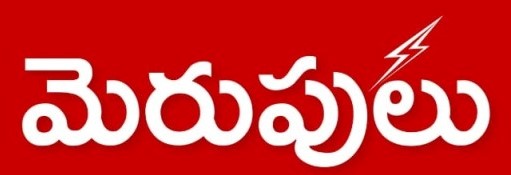తెలంగాణలో హాస్టల్ వెల్ఫేర్ ఆఫీసర్స్ పోస్టులకు సంబంధించి లేటెస్ట్ సిలబస్ను టీఎస్పీఎస్సీ విడుదల చేసింది. మొత్తం 581 పోస్టులుండటంతో ఈ జాబ్స్కు పోటాపోటీ ఉండే అవకాశముంది. ఈ ఎగ్జామ్ ప్యాటర్న్ ఎలా ఉంటుంది… సిలబస్లో ఏమేం టాపిక్స్ కవరవుతాయనే పూర్తి వివరాలు ఇక్కడ అందిస్తున్నాం.
SYLLABUS AND EXAM PATTERN FOR HOSTEL WELFARE OFFICER GR-I, GR-II AND LADY SUPERINTENDENT CHILDREN HOME IN WOMEN DEVELOPMENT AND CHILD WELFARE DEPARTMENT
SCHEME OF EXAMINATION
| WRITTEN EXAM(Objective Type) | Questions | Duration (Minutes) | Maximum Marks |
| Paper-I:General Studies | 150 | 150 | 150 |
| Paper-II: Education (Bachelor in Education Level) | 150 | 150 | 150 |
| TOTAL | 300 |
| Name of the Papers | Language of Examination |
| Paper-I: General Studies | Bilingual i.e., English and Telugu |
| Paper-II: Education (Bachelor in Education Level) |
SYLLABUS
PAPER-I: GENERAL STUDIES
- Current Affairs – Regional, National and International
- International Relations and Events.
- General Science; India‟s achievements in Science and Technology
- Environmental issues and Disaster Management
- Economy of India and Telangana
- Geography of India with a focus on Telangana
- Indian Constitution and Polity with a focus on local self Government
- Society, Culture, Heritage, Arts and Literature of Telangana
- Policies of Telangana State
- History of Modern India with a focus on Indian National Movement
- History of Telangana with special emphasis on Movement for Telangana Statehood
PAPER-II: EDUCATION (BACHELOR IN EDUCATION LEVEL)
- The Constitutional Context
Education as a means of social justice in the Indian Constitution; Constitutional values and education (Preamble, Fundamental rights and duties); the Right to Free and Compulsory Education 2010 (RTE) and inclusion; Education in the concurrent list and its implications
2. Philosophical of Education:
Knowledge, Reason and Beliefs; Experience and Knowledge; Curriculum and Teacher Methods of Philosophical Inquiry: Observation, Intuition, Contemplation, Logic, Experimentation, Meditation and Yoga. Indian and Western Schools of Philosophy; Study of the following thinkers, MK Gandhi; Rabindranath Tagore; Swami Vivekananda; Sri Aurobindo; Jyothibha Phule, Jiddu Krishnamurthi; Maria Montessori, Friedrich Froebel, John Dewey.
3. Sociology of Education:
Socialization and Education, Social change and Education, Culture and Education, Modernization and Education, Equality of Educational opportunities; Education of Weaker Sections; School and Society:Professional Development of Teachers, Child Rights and Pedagogy, School Curriculum, Values and Education. Peace Education. Challenges posed for education by the socio-cultural and economic context: child- labour, child marriage, displacement and migration; Composition of Indian society and its implications for education: Inequality, discrimination, exclusion and marginalization in the context of language, religion, caste, class, gender, region, and disability; Issues and challenges in the education of Dalits, OBCs, the Scheduled Tribes, girls and religious minorities; the role and agency of teachers in the education of above mentioned groups.
4. Educational Psychology
- Human Consciousness: Human Consciousness and Human Behavior; Methods of Psychological inquiry in education.
- Childhood and Adulthood: Understanding the complexities of Childhood and Adulthood; Impact of social, cultural and aesthetic factors in Child Development.
- Growth and Development: Principles of Growth and Development, Stages of Development-Infancy, Childhood, Child Development, Physical, Mental, Social and Emotional Development, Adolescence and Adolescence Behavior, Educational Implications of Growth and Development
- Human Cognition, Learning, Motivation: Nature of Human cognition and its complexities, Human Learning, Theories of Learning (Behavioral, Cognitive, Emotional and Social) and their relevance to classroom teaching, Learning and Motivation; Various theories of motivation (intrinsic and extrinsic), and their applications for classroom teaching.
- Personality and Human Diversity: Meaning and significance of the study of individual differences, Inter and intra Individual difference and its assessment, Concept of Personality and theories of Personality Development its assessment(Projective and Non-Projective Methods); Yoga and Personality Development.
5. Special Education and Disability studies:
Understanding and scaffolding learners with special needs – poor achievers, under achievers, low-level of intellectual functioning, giftedness and creativity, Need and significance of Guidance and Counseling in schools.
6. Understanding the Self:
Importance of understanding the self among teachers and students ; Self-concept and Self-esteem; Personal and Social Identity; Development and Characteristics of the Self
; Self during childhood and adulthood; Socio-cultural contexts and Self Development.
7. Educational Statistics
Descriptive Statistics– Measures of Central tendency, Measures of Variability, Normal Probability Distribution, Skewness and Kurtosis
Correlational Techniques and Inferential Statistics-Concept of Standard Error, Concept and Types of Correlation, Karl Pearson‟s Product Moment Correlation, Spearman‟s Rank Order Correlation.
8. Contemporary Indian Education :
Universalization of Education: Significance, constitutional guarantees and problems, involved in implementing. Wastage and Stagnation in Education-Meaning, causes, problems and remedial measures. Adult Education and Functional Literacy Meaning, scope, problems involved and strategies for remedial action. Non-Formal Education- contemporary significance, problems, methodology ;National Education Policies and NEP-2020.
9. School and Community Relationships:
Need and importance of community school – community relations; ways of bringing them together, making use of community resources, some practical strategies to facilitate appropriate relationships. Medium of Instruction and Language Education Policies in India, three-language formula, its implications and difficulties in implementing. Family life and Population Education. School Health ; Community Health and Education.
10. Life Long Learning and Moral & Spiritual Education
- Life Long Education: Meaning, need and scope, approach and role of teachers. Teacher Education-pre-service and in-Service-Professional Organizations teachers. Vocational Education and Vocationalisation of Education. Quality of Primary Education- Minimum level of Learning Approach. Recommendations of various Education Commissions and Committees in India on Life Long Learning
- Moral and Spiritual Education: Meaning and scope, approaches to Moral Education; Difference between Moral and Religious Education, Practical Work. National and Emotional integration: meaning, nature, problems, and implementation. Celebrating National days and role of schools and teachers.
International understanding, education for peace, disarmament, and co-existence. Yoga and spiritual education; Education of the socially and culturally disadvantaged; Equality of opportunity and strategies to implement social justice oriented programmes.
11. Sustainable Development and Education:
Sustainable Development Goals (SGDs); Ensure inclusive and equitable quality education and promote Lifelong Learning Opportunities for all; Contributions of Govt. of India and UN Organizations towards sustainable development. Role of school and community in sustainable development.
12. School Management and Administration:
Institutional Planning and School Development, Principles of School Management, Administration of Schools and Evaluation of Schools and Teacher‟s Performance. Educational Leadership and Institution Building. Teacher Professional Development.


